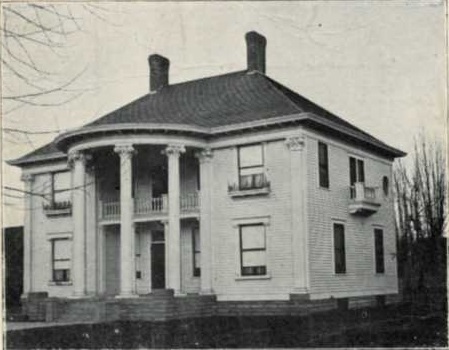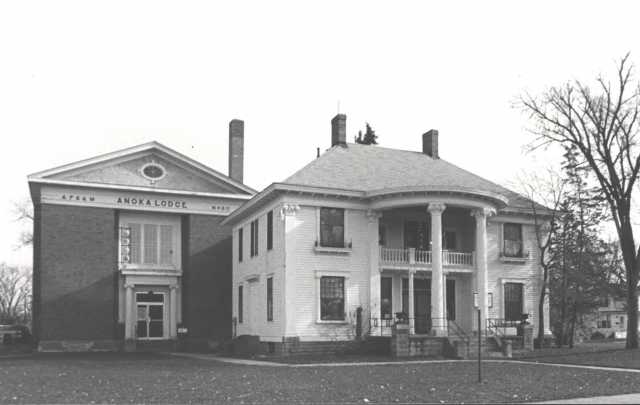On This Date In Twin Cities History - March 19, 1921

On this date in 1921, Dr. Flora Aldrich, the first woman doctor in Anoka, died. She, along with her husband, Dr. Alanson Aldrich, arrived in Anoka in the 1880s. The couple had traveled from New York to Minnesota to visit friends in the area.
Rather that returning to New York, the Aldrichs’ decided to remain in the area and in 1904 they built a combined home and doctors’ office on 3rd Avenue South in Anoka.
Designed by noted architect Frederick Marsh, this seventeen-room Georgian Revival-style home was modeled after those in upstate New York, where the couple was from. The Aldrichs’ named their home “Colonial Hall” and it served a dual purpose for them. It was used as both a residence and offices for their separate practices.
Alanson Aldrich specialized in otolaryngology and was internationally known as a an innovator in the field. Although he maintained an office in Colonial Hall, his main practice was located in Minneapolis. Flora Aldrich specialized in women’s and children’s health.
Alanson passed away in 1916 and following Flora’s death in 1921, the local Masonic Lodge No. 30 purchased the house. In 1922, the lodge built a hall next to the Aldrich home and added a passageway connecting both levels of the two structures. Under ownership of the lodge, the house served as a caretaker’s apartment and a real estate office. During World War II, the government used it as a recruiting office. A school located across the street frequently used the lodge’s basement for gym class as well.
In 1971, an agreement between the Masonic lodge and the Anoka County Historical Society allowed for Colonial Hall to be used as a museum. For the next thirty years, the building housed the collections and administrative offices of the historical society.
On December 31, 1979, Colonial Hall and the adjoining Masonic Lodge No. 30 were added to the National Register of Historic Places. Today the Masonic Lodge still uses the hall while the house is home to The Big White House (formerly the Anoka Artique) antique flea market.
Colonial Hall is also featured on the ‘Ghosts of Anoka Walking Tour’ each September and October in Anoka – the “Halloween Capitol of the World.”


